CMN 200
The Craft of Professional Writing

1. Course Description
This course introduces students to genres and styles of professional writing across organizations and industries. Considering the planning, process, and production of communication texts in professional and creative settings, topics include the variety of written professional texts, audience analysis, message purpose, selection of medium and channel, the editing/revision process, and collaborative writing. This course gives students creative and conceptual tools to develop theoretical and strategic approaches to professional writing.
Last Revised
Prerequisites
Note: This course is available only to Professional Communication students
Delivery
Lab: 3 hours
2. Course Objectives & Learning Outcomes
- Plan, develop, and produce texts in a variety of written professional communication genres
- Assess and adapt genres for different organizational audiences and objectives
- Identify and develop personal and professional styles
- Deliver and accept critique effectively
- Edit/revise documents effectively
3. Topics Covered
- The writing process
- Career portfolio preparation
- Networking and job searching
- Routine messages
- Analysis and argumentation
- External business relationships
- Reports
- Social media and AI in professional communication
4. Teaching Method
Workshops and Lectures
This is a process-based, portfolio assessment course. In this course students will engage in class discussions, work on assignments, and examine issues related to professional writing. Students are expected to participate in frequent in class writing activities and so will require a note-taking device.
Graded Assignments
Evaluation will include class participation, student-instructor interviews, and written assignments as part of ongoing portfolio development.
5. Course Materials
Optional Textbooks
Sundararajan, Binod & Linda Macdonald. Lean, Ethical Business Communication. Toronto: Oxford UP, 2017. ISBN: 9780199011216 (Text available hard copy and/or digital e-book.)
To ensure currency and relevance, course materials will be provided in electronic form on D2L Brightspace.
Course reading materials will be posted in electronic form in e-Reserve on D2L Brightspace.
6. Policy
6.1 University Policies
Students are required to adhere to all applicable university policies found in their Online course shell in D2L and the Course Outline Policies.
6.2 Print and Digital Copying Guidelines:
Toronto Metropolitan University complies with Canada’s Copyright Act which protects both creators/owners and users of copyrighted materials. Students should familiarize themselves with TMU Copyright policies and procedures, and contact the Copyright and Scholarly Engagement Librarian at copyrt@torontomu.ca for questions, concerns and clarification of the copyright rules.
6.3 Turnitin.com
Turnitin.com is a plagiarism prevention and detection service to which Toronto Metropolitan University subscribes. It is a tool that helps instructors determine the similarity between student work and the work of other students who have submitted papers to the site (at any university), Internet sources, and a wide range of books, journals, and other publications. While it does not contain all possible sources, it gives instructors some assurance that students’ work is their own. No decisions are made by the service; it generates an “originality report,” which instructors must evaluate to judge whether something is plagiarized.
Students agree by taking this course that their written work will be subject to submission for textual similarity review to Turnitin.com. All submitted papers will be included as source documents in the Turnitin.com reference database solely for the purpose of comparing the similarity of such papers. Use of the Turnitin.com service is subject to the terms-of-use agreement posted on the Turnitin.com website. Students who do not want their work submitted to this plagiarism detection service must, by the end of the second week of class, consult with their instructor to make alternative arrangements. Even when an instructor has not indicated that a plagiarism detection service will be used, or when a student has opted out of the plagiarism detection service, if the instructor has reason to suspect that an individual piece of work has been plagiarized, the instructor is permitted to submit that work in a non-identifying way to any plagiarism detection service.
6.4 Email Communication
Toronto Metropolitan University requires that any official or formal email communication from students be sent from their official Toronto Metropolitan University electronic accounts.
6.5 Video and Audio Recording
No video or audio recording is permitted in class without the express permission of the instructor.
7. Learning Management System
Toronto Metropolitan University supports Brightspace by D2L as its official Learning Management System. University Policies governing Brightspace have been documented at the Courses @ Toronto Metropolitan University Privacy and Security website.

